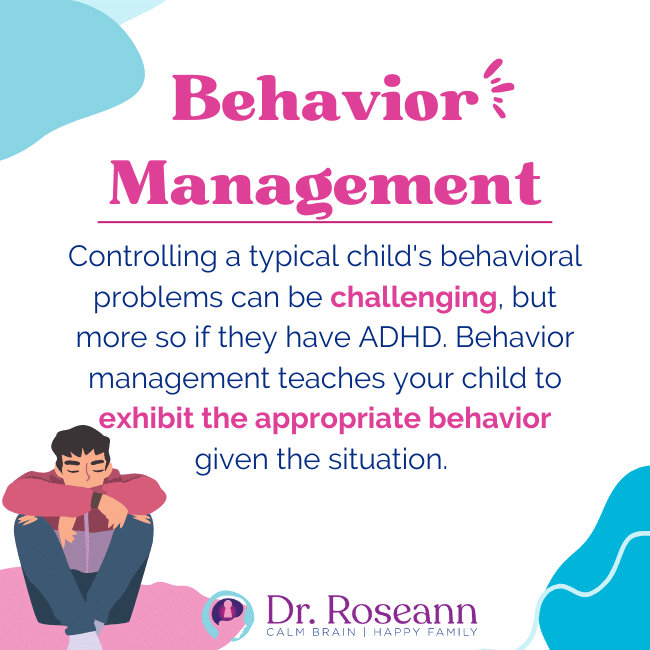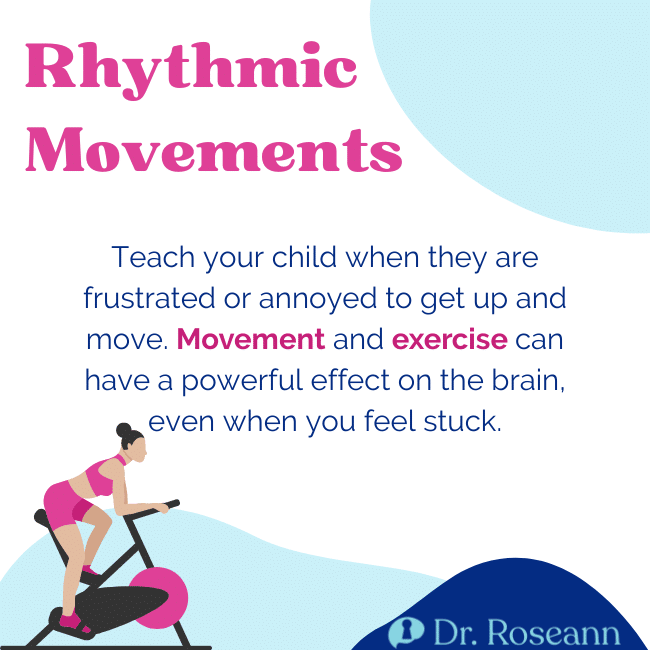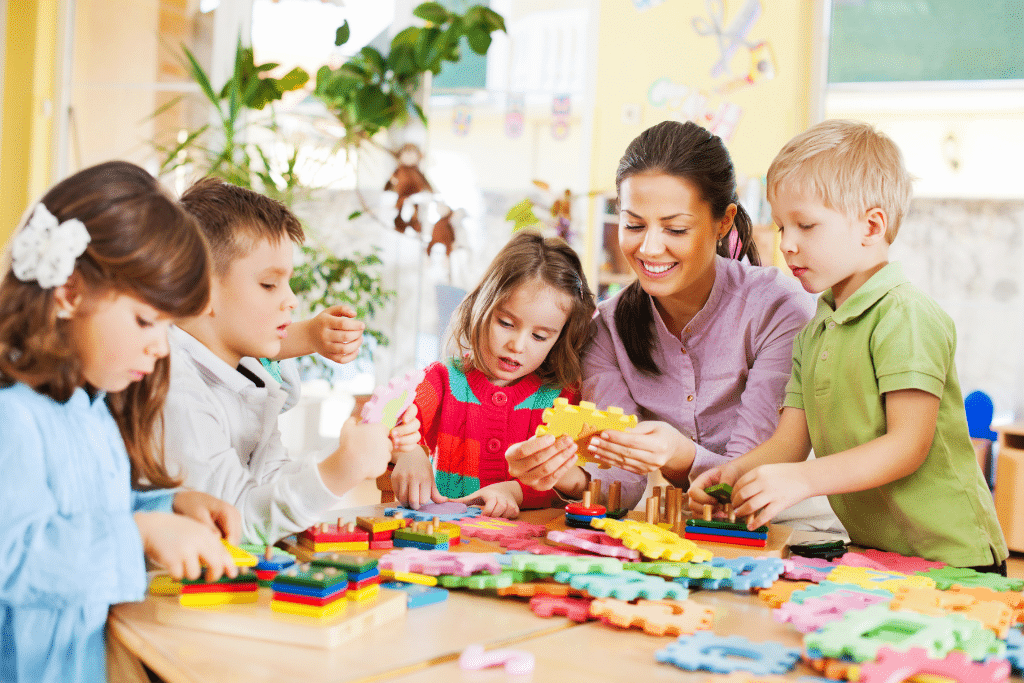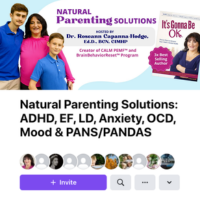Coping Skills for ADHD Kids
A child clinically diagnosed with ADHD or Attention Deficit Hyperactivity Disorder faces many challenges due to their combination of symptoms. Aside from having difficulties sustaining attention, being hyperactive, and having impulsive behavior, they also suffer from poor executive functions. All of these impact them personally, socially, and academically.
Due to a combination of poor attention and increased impulsivity, children and teens with ADHD often have a low frustration tolerance for tasks that are hard or they don't like. They lack the coping skills to help them manage those uncomfortable sensations and feelings that come along when something is hard, frustrating or doesn't go their way.
Parents and their children with ADHD should teach coping skills to help their children and adolescents navigate everyday challenges. By mastering these coping skills, children can easily handle their daily struggles and become better prepared for whatever they face in adulthood.
Edward was a teen who had a hair-trigger temper the moment he couldn't do something. As smart as he was, he was just so easily irritated when a task didn't come easily to him. His parents explained that Edward was like this ever since they could recall. They came to me out of concern that Edward's friends were noticing it more and more and they wanted to ensure he had better ways to manage his impulsive anger.
After a course of neurofeedback combined with family and individual counseling that focused on the whole family learning how to manage stress, Edward was noticeably calmer. Over time, he learned how to tolerate the uncomfortableness of his frustrations and work through the task.
#1 Self-monitoring
Self-monitoring is grounded in mindfulness. It is the simple act of monitoring one's own activities. In the case of children with ADHD, this is a skill that needs to be explicitly taught. Self-monitoring can involve asking oneself questions about their own performance.
Teaching your child with ADHD how to monitor themselves will help them greatly in the long run. Self-monitoring allows them to assess their performance and apply a strategy to improve themselves.
One study looked at the effectiveness of self-monitoring among schoolchildren. While self-monitoring, the students were asked to follow their teacher's instructions or work on a classroom assignment. Results showed a lower percentage of inattentive or off-task behaviors among students with ADHD after practicing self-monitoring (Mirnasab & Bonab, 2011).
#2 Motivation
Motivation is a significant concern among children with ADHD. With adequate motivation, an ADHD child can overfocus. Without adult intervention at home and school, the child may not be able to complete tasks. Parents often struggle with how to motivate their children to do tasks outside their interest areas but these executive functioning skills can be taught.
Motivating a child with ADHD is slightly different from motivating neurotypical kids. The more effective strategies include integrating physical activities into the instructions, showing them the path to task completion, and encouraging them to focus on accuracy (Brighton, 2011).
#3 Goal Setting
Because children and teens with ADHD struggle with many issues, parents may want to address them all simultaneously. However, parents should also remember that these kids get easily frustrated or overwhelmed. Therefore, it's better to help them set goals and introduce them one at a time. Teaching time management rather than nagging them about uncompleted tasks is a good place to start because children with ADHD often have time blindness.
Setting goals that are realistic enough for them works best. Create goals for your child that they can complete and give them plenty of practice and reinforcement. Make a written list of these goals so the child can refer to them quickly, and you can check on them, as well as rate themselves on how well they fulfill them
#4 Behavior Management

Controlling a typical child's behavioral problems can be challenging, but more so if they have ADHD. Behavior management teaches your child to exhibit the appropriate behavior given the situation.
As a parent, you must find different ways to encourage the desired behavior you want to see from your child, especially if they have attention deficit disorder. Seek extra help from a healthcare professional to develop strategies to support your child in school and manage their high energy levels or inattention.
Ensure the plan includes your child's needs at home, school, and elsewhere. Also, remember that positive reinforcement will significantly affect your child's life. For example, kids gain extra confidence when acknowledged for achieving a goal.
#5 Social Skills
Social skills can be a significant deficit area for children and adolescents with ADHD. Social skills don't develop naturally, even for neurotypical kids. They develop over time with social experiences. While some children with ADHD can learn to get along with other people and make friends in school, others struggle and need explicit help with the nuances of peer interactions.
They must practice reading social cues and take small steps when meeting and talking to people other than family members. Acknowledge your child's anxiousness and bad feelings when dealing with social situations and give them concrete, non-judgmental support. Finally, celebrate success once you see them practicing and developing some social skills.
#6 Rhythmic Movements

Rhythmic movements are effective coping strategies for hyperactive children. For example, rocking your child back and forth on a swing or rocking chair can create a calming effect and ease their hyperactivity. Even walking or simple stretching can help get the brain alert and calm a frustrated mind.
Teach your child when they are frustrated or annoyed to get up and move. Movement and exercise can have a powerful effect on the brain, even when you feel stuck.
You can let your child do many other rhythmic movements, such as climbing the stairs, dancing, or marching in place. Try activities that allow them to focus on the rhythm of a repeated movement can help.
Rhythmic movements help stimulate a child's motor and cognitive functions, even if they have specific disabilities. Therefore, it is also best to introduce them during their early school years as an alternative way of teaching.
Improving rhythmic skills through music can help stimulate a child's motor coordination while enhancing their attention, socialization, and communication skills playfully and creatively (Liparoti & Minino, 2021).
#7 Scheduling
Many parents with an ADHD child find that structuring and planning their child's daily tasks create good results in keeping frustration at bay. Clear routines help children with ADHD because it allows them to prepare for what's ahead of them. However, parents must do their best to inform their kids if there are any changes to their daily routine while at the same time teaching them to switch gears.
Aside from sticking to a schedule, give your child specific advance instructions. It would allow them to complete a new task more confidently. For example, clear and detailed instructions mean asking them to read Chapters 4 and 5 of their science book instead of just telling them to do their homework.
#8 Mindfulness

Mindfulness means being more aware of what's happening around you and inside your mind and body. Teaching your child with ADHD mindfulness strategies will help settle their nervous system. As a result, they will feel at ease, calm, and relaxed.
Studies have proven that mindfulness is an effective and helpful tool for children with ADHD (Mitchell et al., 2015). It can help decrease emotional reactivity and anxiety while improving attention. In addition, mindfulness training can help children handle daily activities and modify their negative behaviors.
#9 Anger Management

If your child or teen is verbally or physically aggressive, hyperactive, and impulsive, then managing their aggressive behavior is crucial. The first step to aid kids who are easily angered is to ignore behavior or cue to use their tools whenever possible
Sometimes you need to remove your child from their surroundings. Doing so allows them to calm down and address their emotions and aggression. In addition, this time-out period gives them enough time to manage their feelings and process what has happened and why it happened.
Parents should also realize that an ADHD child's pent-up energy or sensory issues may have caused the problem. When the child doesn't find a suitable outlet to release their energy, it will build up inside them.
Therefore, the parents of children with ADHD need to think about why these aggressive and disruptive behaviors are happening. For example, maybe they need an energy release, so you can let your child run all over the park to release their excess energy, which is beneficial for them.
#10 Self-care
Regarding ADHD, self-care is among the most important things to consider. Self-care is not just for the child but for the parents too. That means taking 10 or more minutes a day to calm the brain and body. Moreover, taking time for self-care is a healthy way to preserve your family's quality of life.
Self-care can start by taking breaks, eating right, and exercising. Even simple breathwork can help reduce stress, which makes your child more mentally available to manage frustrations. Spending extra time on things that can reduce stress is an important investment of time. Seek support from family and friends.
If you need support in finding ways to reduce stress, find a mental health professional who can assist you. This will tremendously help you and your child with ADHD.
Support for Kids and Teens with ADHD Who Lack Coping Skills
If you're a parent who is concerned about your child's behavior, we can help. First, we can confirm your child's diagnosis and issues and recommend effective treatment.
When your child is easily frustrated, that means they are harder to parent. Focusing on stress management at home and learning skills they can use to manage uncomfortable sensations and feelings is important. A calm brain is the first step to dealing with life's frustrations.
At our center in Ridgefield, CT, we provide natural, science-backed solutions to treat your child's ADHD symptoms in person and remotely. We don't use any medication with many side effects, which is a given for conventional ADHD medication.
We address mental disorders through behavioral interventions, Neurofeedback, PEMF, and nutritional supplements, following a treatment plan that matches your child's condition. Our center can also provide remote professional help to bolster your child's treatment.
Citations
Brighton, D. (2011, August 1). Coping Skills for Students with Attention Deficit Hyperactivity Disorder: A Meta-Synthesis. Scholarworks.alaska.edu. https://scholarworks.alaska.edu/handle/11122/4904
Liparoti, M., & Minino, R. (2021). Rhythm and movement in developmental age. Journal of Human Sport and Exercise – 2021 – Winter Conferences of Sports Science. https://doi.org/10.14198/jhse.2021.16.proc3.10
Mirnasab, M. M., & Bonab, B. G. (2011). Effects of Self-monitoring Technique on Inattentive Behaviors of Students with Attention Deficit Hyperactivity Disorder. Iranian Journal of Psychiatry, 6(2), 84–86. https://www.ncbi.nlm.nih.gov/pmc/articles/PMC3395940/
Mitchell, J. T., Zylowska, L., & Kollins, S. H. (2015). Mindfulness Meditation Training for Attention-Deficit/Hyperactivity Disorder in Adulthood: Current Empirical Support, Treatment Overview, and Future Directions. Cognitive and Behavioral Practice, 22(2), 172–191. https://doi.org/10.1016/j.cbpra.2014.10.002
Always remember… “Calm Brain, Happy Family™”
Are you looking for SOLUTIONS for your struggling child or teen?
Dr. Roseann and her team are all about solutions, so you are in the right place!
There are 3 ways to work with Dr. Roseann:
You can get her books for parents and professionals, including: It’s Gonna Be OK™: Proven Ways to Improve Your Child’s Mental Health, Teletherapy Toolkit™ and Brain Under Attack: A Resource For Parents and Caregivers of Children With PANS, PANDAS, and Autoimmune Encephalopathy.
If you are a business or organization that needs proactive guidance to support employee mental health or an organization looking for a brand representative, check out Dr. Roseann’s media page and professional speaking page to see how we can work together.
Dr. Roseann is a Children’s Mental Health Expert and Therapist who has been featured in/on hundreds of media outlets including, CBS, NBC, FOX News, PIX11 NYC, The New York Times, The Washington Post,, Business Insider, USA Today, CNET, Marth Stewart, and PARENTS. FORBES called her, “A thought leader in children’s mental health.”

She is the founder and director of The Global Institute of Children’s Mental Health and Dr. Roseann Capanna-Hodge. Dr. Roseann is a Board Certified Neurofeedback (BCN) Practitioner, a Board Member of the Northeast Region Biofeedback Society (NRBS), Certified Integrative Medicine Mental Health Provider (CMHIMP) and an Amen Clinic Certified Brain Health Coach. She is also a member of The International Lyme Disease and Associated Disease Society (ILADS), The American Psychological Association (APA), Anxiety and Depression Association of America (ADAA) National Association of School Psychologists (NASP), International OCD Foundation (IOCDF) International Society for Neurofeedback and Research (ISNR) and The Association of Applied Psychophysiology and Biofeedback (AAPB).
© Roseann-Capanna-Hodge, LLC 2023
Disclaimer: This article is not intended to give health advice and it is recommended to consult with a physician before beginning any new wellness regime. *The effectiveness of diagnosis and treatment vary by patient and condition. Dr. Roseann Capanna-Hodge, LLC does not guarantee certain results.













